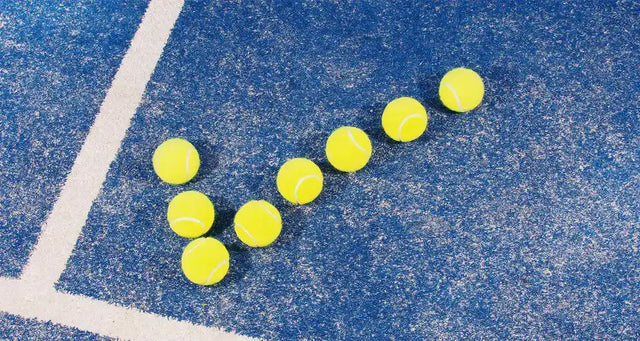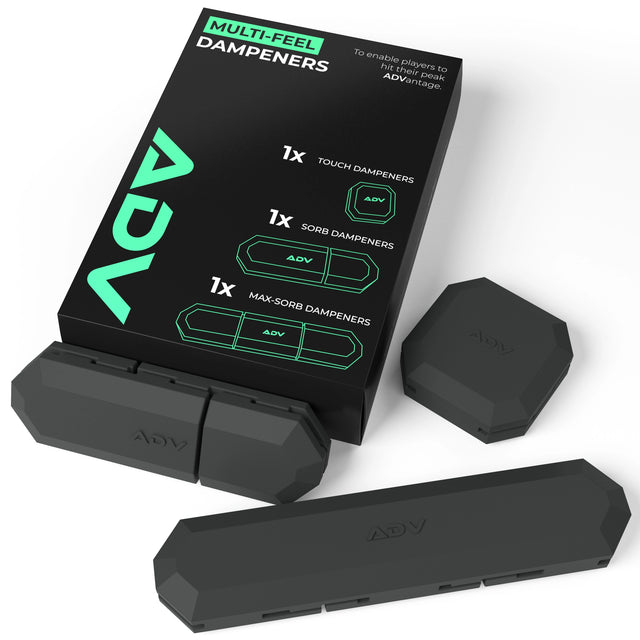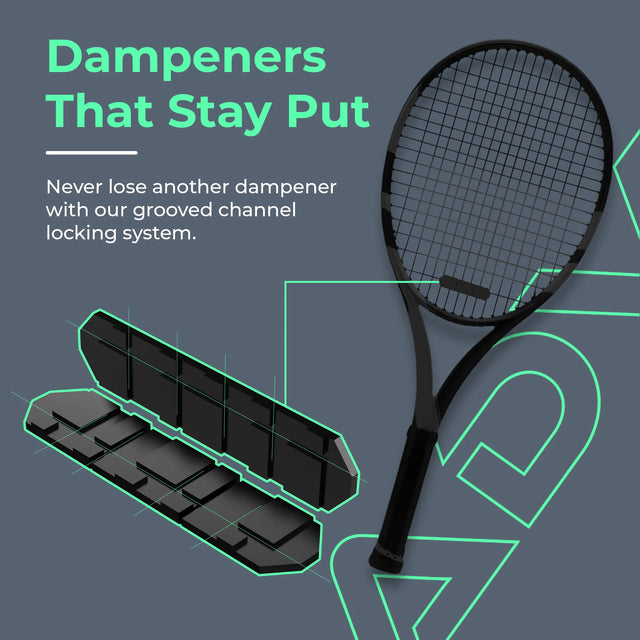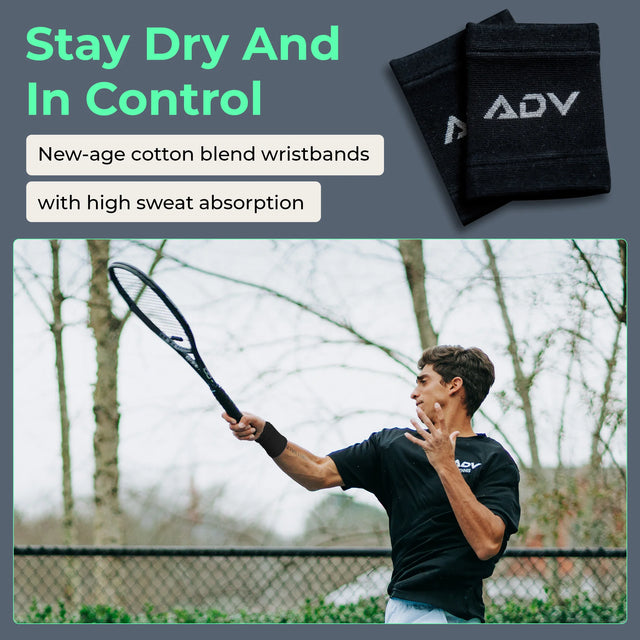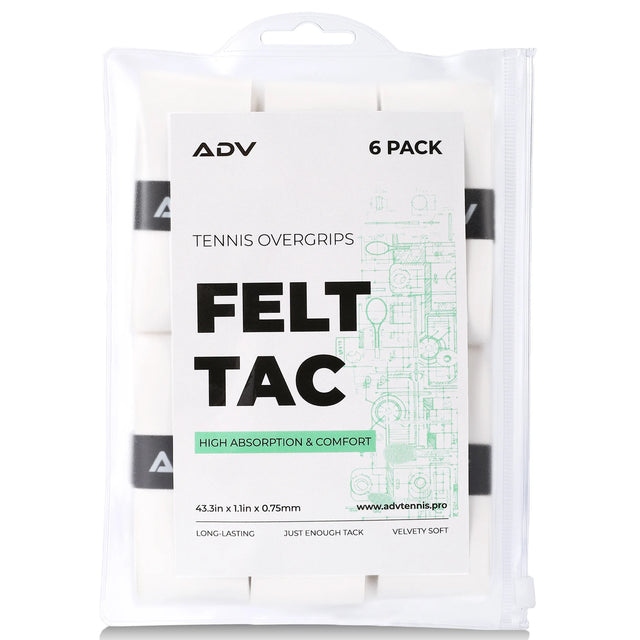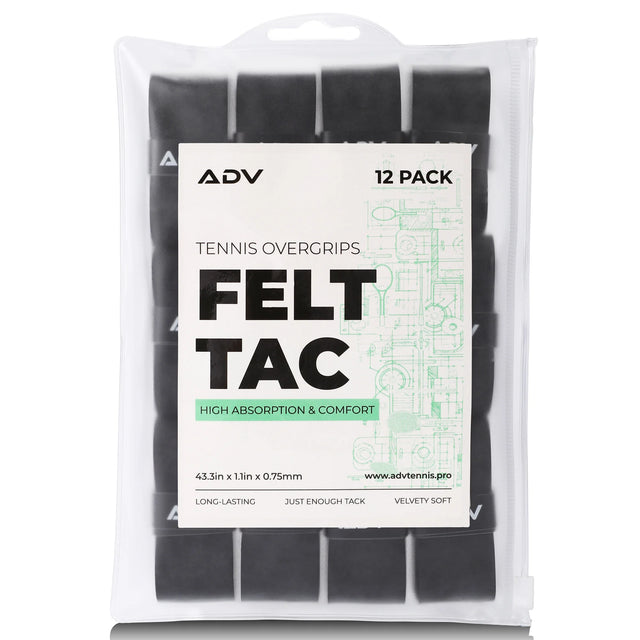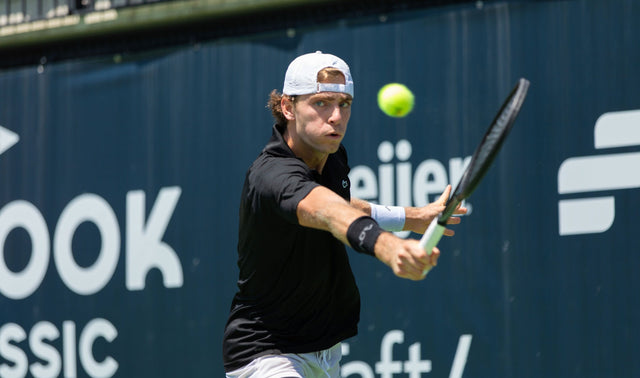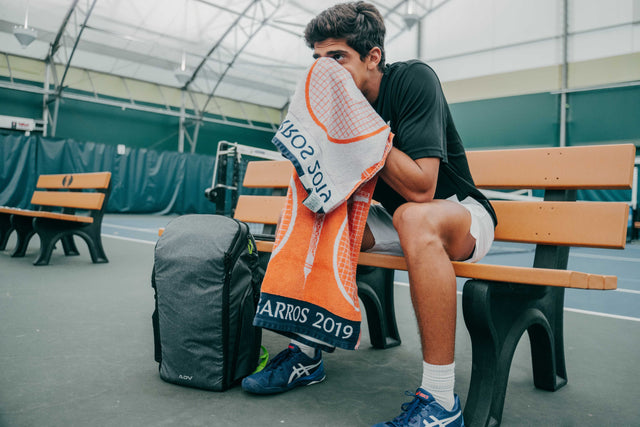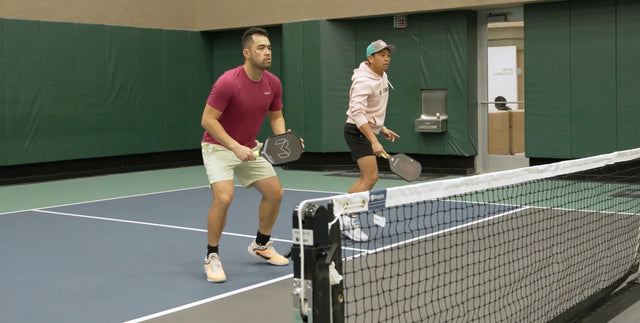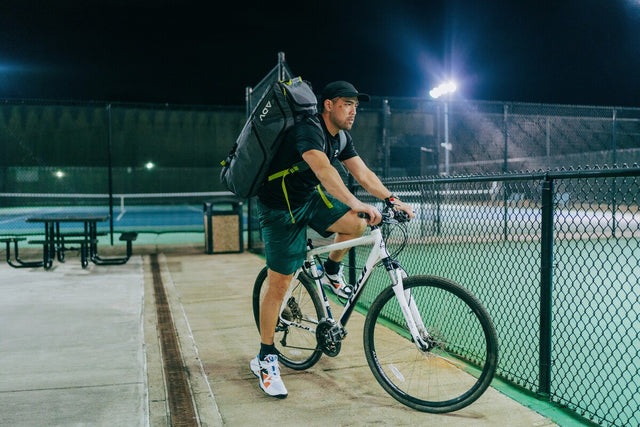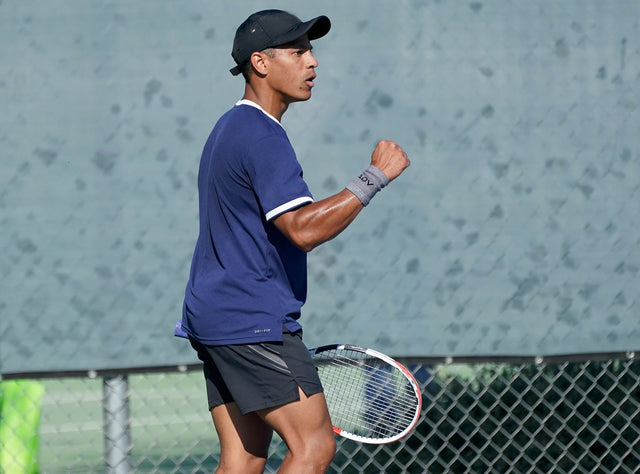Prepare For Your Next Tennis Match, Like A Pro
WHEN I was playing on tour I gained a lot of confidence from knowing that I had done everything in my power to control everything I had control over. Things I made sure to have control over were:
- A strong focus on improving physical fitness during the offseason of November and December.
- Making technical changes and working on new patterns.
- Eating a well-balanced, healthy diet and not drinking alcohol and sodas.
- Mimicking the surface and conditions at upcoming tournaments – even including using the same balls and trying to copy the conditions at the tournament as best as possible until I actually traveled to the place.
If you’re not on tour you may not have the ability to do all those things listed above, but there are still a lot of things you can do to not leave things up to chance.
So, let’s run through the list of things you can control that I developed while coaching at Vanderbilt and Tulane. There, I stressed the “48 hours before match time” as the key preparation time frame.

48 HOURS BEFORE MATCH TIME
- Hydrate, hydrate, hydrate. Your urine should run clear, if it’s not, drink up!
- Try to get at least 8 hours of sleep all nights before the match.
- Eat consistently healthy meals, avoiding sodas and high fat content meals (sorry, no triple burger with double fries and 2 Cokes!)
- Ensure all your equipment is ready to go. Are you rackets all freshly strung? Shoes have enough rubber left? New grips? Your lucky wristband?
- Taper down your practice time from long, super intense sessions to shorter, more individualized sessions working on your strengths, not weaknesses. You should walk on court focused on what you’re good at and not let your brain’s negativity bias take over and weigh you down with your weaknesses.
THE NIGHT BEFORE MATCH TIME
- Watch footage of the other player, if it exists, or get input from other players who had played your opponent.
- Develop a game plan (see point 2).
- Again, try to get a good night’s rest, I really can’t stress that enough.
THE MORNING OF THE MATCH
- Depending on match time, get up at least 2 hours before the match starts and have a light breakfast. You don’t want to feel stuffed as you can always replenish with a sports bar, banana or bagel.
- Avoid and reduce any distractions and uncertainties. For myself, knowing I had done everything I could gave me a sense of readiness and relaxation.
THE LAST HOUR BEFORE MATCH TIME
- I would recommend showing up about an hour early to warm up. Ideally, you’d be on court hitting between 30-45 minutes to get everything warm. For reference, my ideal hitting time before a match was 45 minutes so that I’d be able to get into a good rhythm and ideally play a few points out, but this is different for everyone.
- If a hitting partner isn’t available, hit against the wall or use the ball machine. If you can’t do that, go to an open space and do a dynamic warm-up that includes jumping rope, stretching and shadow swinging. The point is that you don’t want to walk on the court completely cold and risk injury.

YOUR WARM UP IS NOT FOR WARMING UP
A lot of players walk out on the court with the idea that they’ll use the 5-minute warm up as the time to physically get ready. Your body needs more than 5 minutes and you really don’t want to waste the first 2-3 games to be ready. The real physical warm up needs to happen off court.
A lot of players walk out on the court with the idea that they’ll use the 5-minute warm up as the time to physically get ready. Your body needs more than 5 minutes and you really don’t want to waste the first 2-3 games to be ready. The real physical warm up needs to happen off court.
- You want to use your warm-up for further scouting of your opponent. Look at your opponent’s grip – is it an extreme grip that will make it hard to get under slice? Hit a few short, high balls and wide balls and notice how well they move. Do they seem comfortable at net?
- Definitely hit a few of their serves back for some return practice.
- Take note of wind, sun, shadows across the court or anything else that could influence play.
There are so many clues to be picked up during the warm up, it would be a shame to waste this opportunity to solidify and validate your game plan.

HAVE A GAME PLAN TO ENSURE YOU CONTROL EVERYTHING THAT YOU CAN CONTROL.
Think of a game plan as a playbook that evolves with each and every opponent. Throughout my career, having a game plan helped me build confidence in the most stressful of times and ultimately was a key to winning matches. Below are some notes on how I built a game plan.
- I would first scout my opponent as much as I could. I would watch my competitor’s matches/practices as much as possible and really work to understand the player’s tendencies, tactics, strengths, and weaknesses.
- With my opponent’s scouting report in hand, I always tried to have an offensive mindset and look for blatant weaknesses (there really aren’t many when you play on Tour).
- I then tried to figure out what my cues were to use my biggest weapons: my backhand and my volleys. In other words, what would I have to do to create chances for me? Since I wasn’t the type of player who could just hit an opponent off the court, I had to use my versatile game to create opportunities. For example, could I force shorter/weaker balls by slicing short and low? - What about opening the court with angles or by rolling balls heavy above my competitor’s shoulder?
- My mindset was always to impose my game style on my opponent – if I could do that I’d be in good shape. I wanted to feel that - I was in control regardless of my opponent’s ranking.
- I also devised a Plan B in case I wasn’t able to force my game on my opponent. I thought to myself, how could I neutralize my opponent’s strengths and turn the point in my favor? Since I didn’t have a smoking forehand or serve, I took pride in forcing errors by defending well. The biggest compliment I ever received was when an opponent yelled out in frustration “she doesn’t do anything”. Well, obviously, I had done my homework well enough for her to self-destruct!
Nowadays, my focus has shifted squarely to coaching tennis, not just on court training but also the mental side of things including helping to build game plans. The more I talk to my players, the more I realize many players don’t have a game plan at all. More often than not, players aren’t even aware of their own strengths and don’t take into consideration their opponent’s weaknesses. To me, that puts you in a defensive, reactionary position. To win a match, you’ll have to use your strength, as well as neutralizing and defending against your opponent’s strengths.
Match preparation is all about setting yourself up for success by ensuring you control everything that you can control. Simply put, that was a key to my success on tour and something I stress to all my players.

🎾 Written by Meike Babel, contributor and ADV collaborator
Meike is a former world-class tennis player, reaching a career high of #27 in singles and #45 in doubles in 1995 on the WTA Tour and was nominated for the WTA “Rookie of the Year” Award. She has played in 19 Grand Slams and for the German Fed Cup team. After retiring from the WTA Tour, Meike became an assistant coach at Tulane and Vanderbilt University where she later graduated from Vanderbilt with a degree in Human and Organizational Development. Realizing a passion for the mental side of tennis she worked with Duke University Integrative Medicine to assist clients in behavior modification. She is also Mental Toughness Specialist certified by Dr. Jim Loehr’s Human Performance Institute.
Currently she is a high-performance coach in Denver, CO and works as mental skills coach with the Vanderbilt tennis team as well as individual athletes from different sports. She is also serving as USTA Regional Training Center Mental Skills Coach. Meike currently offers mental training courses and coaching. Feel free to reach out to her at meikebabel.com.

